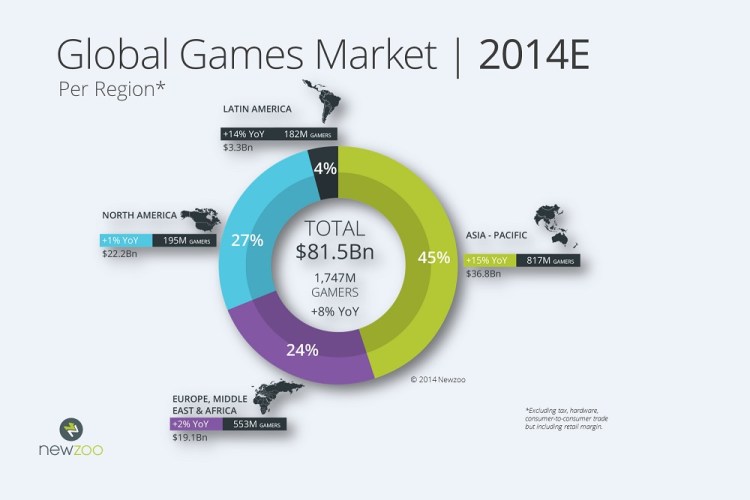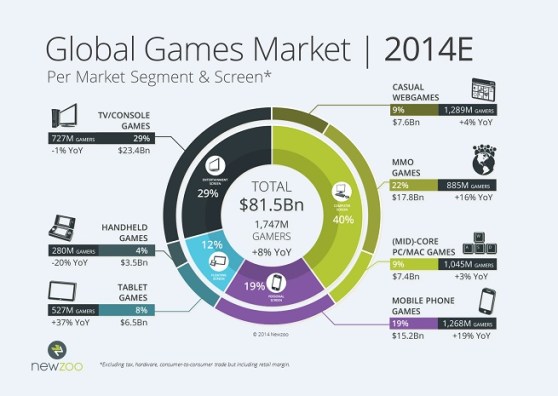Gaming is growing, but mostly in Asia. Market researcher Newzoo is reporting today that Asia-Pacific will account for 82 percent of the $6 billion in global game revenue growth in 2014.
The industry is expected to grow 8 percent to $81.5 billion this year. Because of its faster growth rate, the Asia-Pacific region will grow its global market share from 42 percent to 45 percent, or $36.8 billion of the total.
The total revenues include all sectors of games including, PC, online PC, social, mobile, and console games. Latin America represents just 4 percent of the global market share, but it will grow 14 percent to $3.3 billion this year thanks to rising gross domestic product and online connectivity in the region.
North America will grow modestly to $22.2 billion in 2014, or 27 percent of total. Europe, Middle East, and Africa (EMEA) will be $19.1 billion, or 24 percent.
Globally, the computer screen will be the dominant way people play games in 2014, accounting for 40 percent of the worldwide market and growing 9 percent from a year ago. The TV screen will take 29 percent market share and $23.4 billion in revenues, down 1 percent from a year ago. Handheld console devices will drop 20 percent in 2014, offset by a 37 percent growth in tablet revenues. Overall mobile will grow 19 percent in 2014 and account for 27 percent market share, or $21.8 billion.
Massively multiplayer online games will grow 16 percent to $17.8 billion in revenue. Gamers will spend $2.4 billion more on MMOs in 2014 than in 2013.
Casual web games and midcore PC/Mac games will grow modestly. Mobile will reach 1.2 billion gamers.
VentureBeat's mission is to be a digital town square for technical decision-makers to gain knowledge about transformative enterprise technology and transact. Learn More


